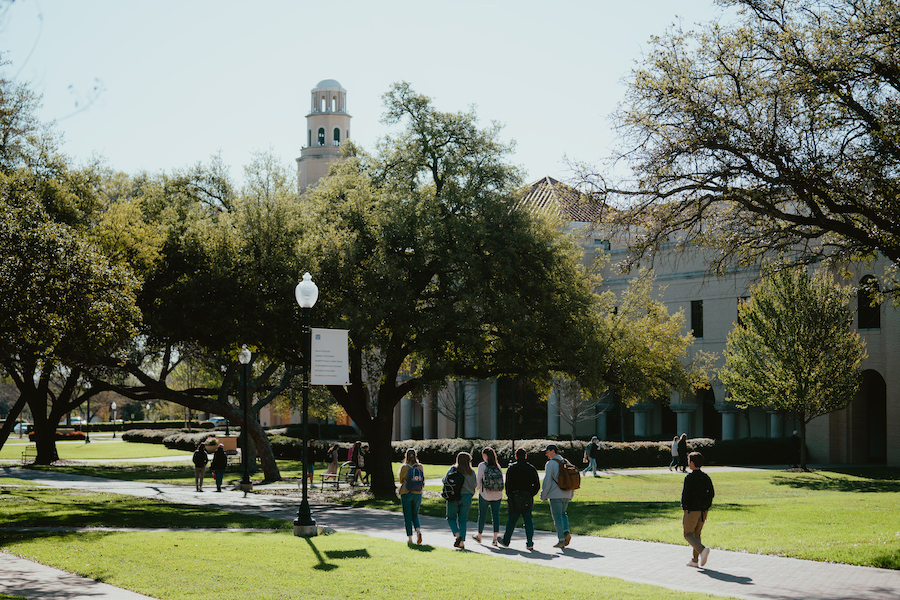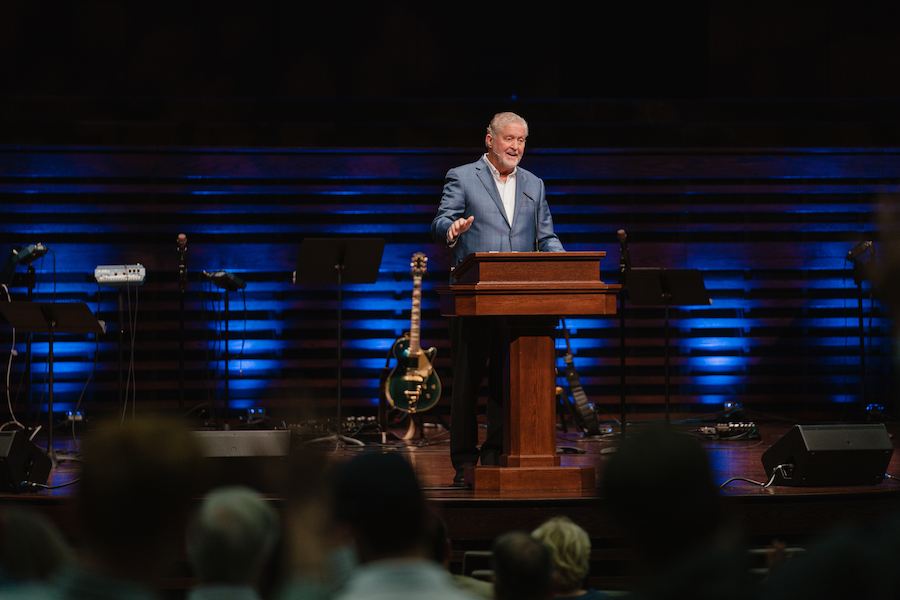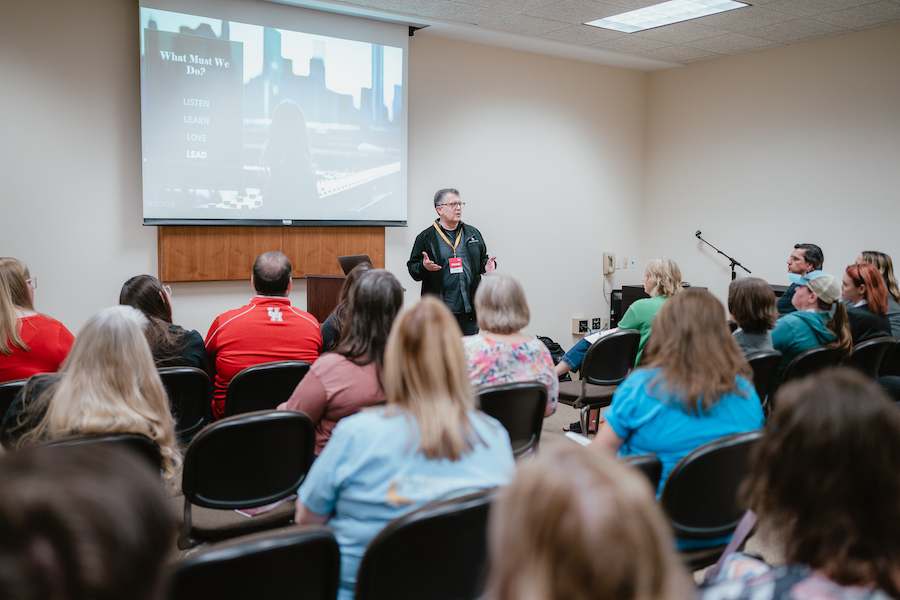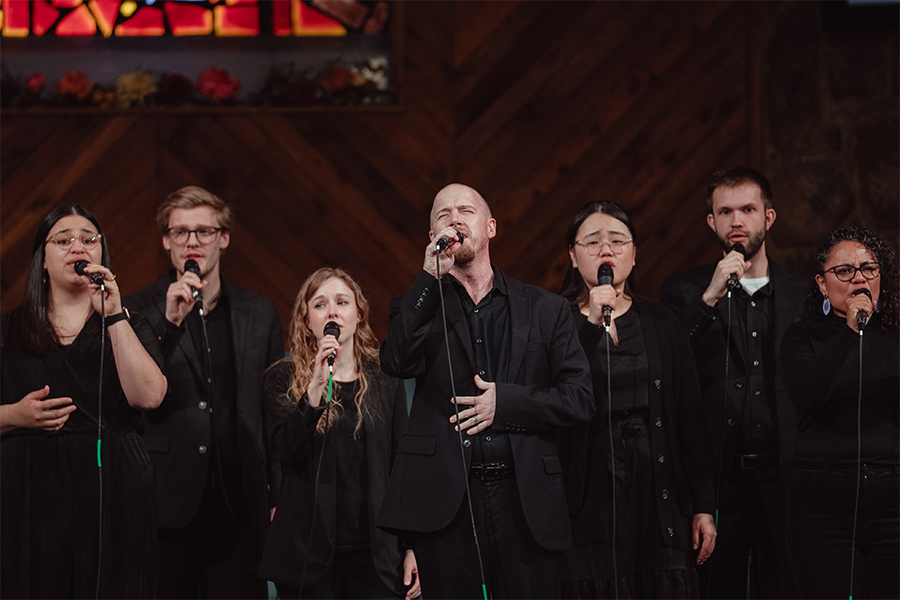New video series helps ministers live their calling in midst of COVID-19
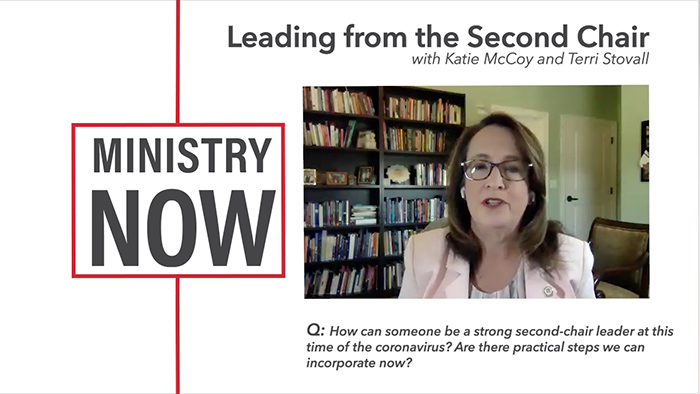

“Ministry Now” is a new video series featuring interviews with faculty from The Southwestern Baptist Theological Seminary designed to help ministers live their calling “in an ever-changing ministry landscape,” especially due to COVID-19, said host Katie McCoy, assistant professor of theology in women’s studies at Scarborough College, in the series’ premiere.
New episodes of the series air every Thursday at 10 a.m. CT on Facebook and YouTube, with the first episode premiering on May 14. The premiere featured Dean of Women Terri Stovall speaking on the topic “Leading from the Second Chair.”
A second-chair leader, Stovall explained, is one who has a significant leadership role but is nevertheless under the authority of a “first-chair leader.” First-chairs include the senior pastor of a church or the president of a seminary, while second-chairs include a church’s student minister and children’s minister or a seminary’s faculty and staff.
On navigating the tension of both leading and being led, Stovall said, “As a leader, my primary goal to the people I’m leading is to give hope and assurance. My primary goal to my first-chair leader is to make him successful in carrying out the mission and vision that God has given him for our church or our organization.”
“So it starts with building those relationships,” says Stovall, who has served as minister of education and minister to women in multiple churches. “And then, as I communicate, my first role in communication is giving hope and assurance that God is still in control, that I trust our pastor or our leader at the top, and that, while I may not even know everything, I trust him, and therefore I can communicate that to the people I’m leading.”
Focusing the conversation on the global pandemic, McCoy noted that “every church, every ministry, every family is going through a time of unprecedented transition” because of the coronavirus. “We still don’t know what life is going to look like on the other side of COVID-19,” she said.
She asked Stovall, “How do you lead your team through the transition and the uncertainty of coronavirus, when we’re trying to even figure out what our jobs and ministries are going to look like?”
Stovall began by noting the need to daily ensure “that my feet are grounded in the assurance that while change is constant, God is consistently constant.”
“And so, I need to check in every day with the Lord, to know that He is still in control,” she said. “None of this has caught Him by surprise.”
On a practical level, Stovall said she has “upped the number of check-ins” with her team. These comprise short meetings on Zoom or Microsoft Teams not only to check their productivity, but also to see how her team members are doing emotionally and physically. Furthermore, she makes efforts to “celebrate the small successes” and “lament the losses.”
“I don’t want us to shy away as leaders in speaking about the losses,” Stovall said. “There is a time of lament that’s going to come out of this.”
She noted, for example, that she has spoken with mothers of high school seniors who lament the “memories that they thought they would be able to make.” Others simply miss gathering with friends for coffee. Such circumstances call for lament, Stovall said.
“But we do it with hope and with a view to the future to know that God can still do His work,” Stovall concluded. “And we put words to that.”
Future topics for “Ministry Now” include re-opening churches in a post-COVID-19 world (with Chris Osborne, professor of preaching and pastoral ministry) and ministering to people’s needs (with adjunct faculty and former missionary Rebekah Naylor).
